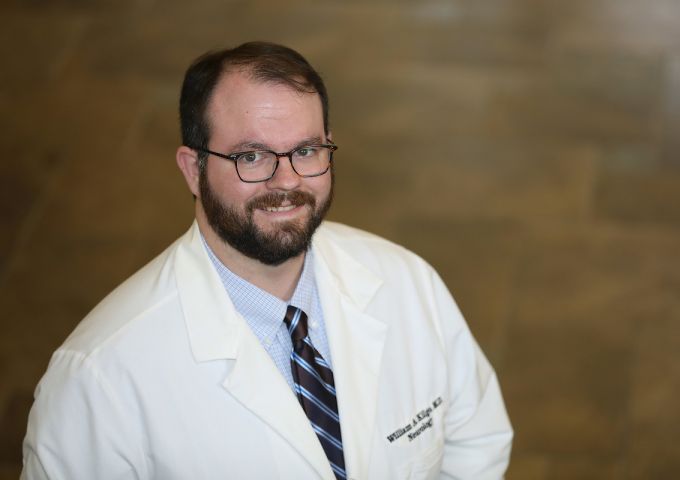
University of South Alabama medical students apply their skills an ocean away
On a hot day in June, Madeline Tucker placed the tip of a stethoscope on a young girl’s chest and listened to what she’d only heard in a recording played in the classroom – the “whoosh, whoosh” of a heart murmur.
By Carol McPhail
On a hot day in June, Madeline Tucker placed the tip of a stethoscope on a young girl’s chest and listened to what she’d only heard in a recording played in the classroom – the “whoosh, whoosh” of a heart murmur.
Tucker, a second-year medical student, was in Senegal, Africa, an ocean away from her classroom at the University of South Alabama College of Medicine in Mobile. “I’d never heard it on a real person before,” she said.
Tucker relayed her findings to a doctor on the medical mission trip, who confirmed the diagnosis, which could be attributed to a variety of causes, including anemia. “It was rewarding to see things you’ve learned about happen in real life,” she said.
The 11-day trip, organized by the Christian Medical Ministry of South Alabama, included 26 participants, 16 of whom were medical students who had just completed their first year of studies at the USA College of Medicine.
“Having our students participate in medical missionary trips such as the recent one to Senegal allows them to hone these time-honored skill sets in an environment much different than their daily one,” said Dr. Kelly P. Roveda, associate dean of student affairs at the USA College of Medicine. “Additionally, these trips provide students firsthand exposure and a glimpse into the real world of healthcare disparity.”
The mission team set up a clinic in the village of Djilas, southeast of the Senegal capital of Dakar, bringing healthcare two hours closer to local residents. They organized stations for triage, medicine, lab, pharmacy, optometry and physical therapy. The group also distributed toys and clothes to children.
“They were so thankful that we came,” said Tucker, who was raised in Scottsboro, Ala. “The experience opened my eyes to the lack of access to healthcare in some parts of the world.”
The austerity of the living conditions – no running water or modern toilets – was challenging to the students and gave them an opportunity to bond with each other, she said. “I’d never been on a foreign medical mission trip, so I didn’t really know what to expect. I came back with clinical experience and also an appreciation of what I have,” she said.
It was also the first medical mission trip for Dr. Rebecca Sollie, assistant professor and assistant clerkship director in USA’s department of family medicine. “It is a wonderful opportunity for medical students to take the knowledge and skills that they have acquired during their training and put them to use in a more independent role than they may be able to have during their clerkship rotations,” she said. “It was especially rewarding to see their skills and confidence grow as they made a noticeable difference in their patients’ lives.”
The opportunity to participate in medical missions was one of the factors that drew Tucker to the USA College of Medicine after graduating in biomedical sciences and Spanish from Auburn University. She’s also a legacy; both of her parents earned medical degrees here in 1991.
This past summer, Tucker is conducting research under the supervision of Dr. William Kilgo, assistant professor of neurology, and is also helping at a student-run clinic at the Salvation Army as she prepared to enter her second year.
About USA Health
Beginning with the founding of the USA College of Medicine in 1973, USA Health stands as the only academic medical center along the upper Gulf Coast. It provides excellent healthcare to the region’s diverse population at University Hospital and Children’s & Women’s Hospital, one of only five freestanding hospitals in the country dedicated to the healthcare of children and women. Continuous research and technological advancements keep Mitchell Cancer Institute at the forefront of cancer treatment and outcomes. The health system employs 3,900 clinical and nonclinical staff members, including some 180 academic physicians who serve dual roles treating patients and teaching the next generation of medical doctors.




